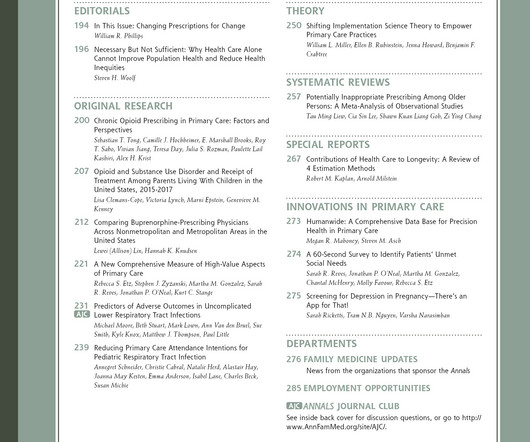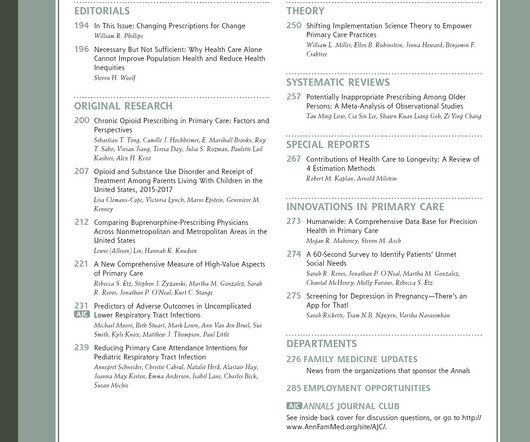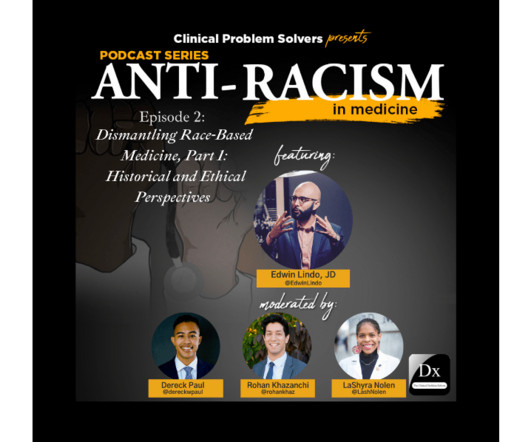Aftershock in Academia: Assessing COVID-19s Impact on Schizophrenia Patients in Academic Medical Centers [Behavioral, psychosocial, and mental illness]
Annals of Family Medicine
NOVEMBER 20, 2024
Context: The impact of the COVID-19 pandemic on individuals with schizophrenia who are admitted to academic medical centers (AMCs) has not been previously reported. Study Design: This retrospective case series analysis utilizes Vizient’s clinical database data. from Oct 2019 to Dec 2023. Mixed models were used for analysis.































Let's personalize your content